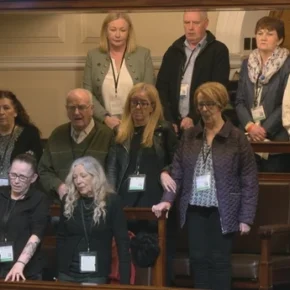Prognosis is poor for health service reform
Dublin People 07 Mar 2015YOU can really only appreciate the scale of the crisis in our health service when you experience it for yourself, be it personally or through the eyes of a sick friend or relative.
The main problem with our hospitals is not the standard of care provided by those in the medical profession – it’s trying to get access to it.
While there are always exceptions, in general I have found the quality of our medical professionals – from frontline ambulance crews to nurses, junior doctors and consultants – second to none.
In particular, I will always remember how well we were treated when our children were born in Holles Street and the immense gratitude I felt towards the competent and caring midwives.
But not all of my experiences with the health service have been so positive. I have seen elderly relatives left languishing on hospital trolleys and have endured long, painful hours in chaotic A&E departments in the presence of aggressive drunks and drug addicts.
There is a serious case to be made for segregating those presenting to A&Es with alcohol related injuries. Unless there is an obvious risk to life, they should be made wait the longest for treatment so genuine cases can be prioritised by hospital staff.
Like so many others, inordinate public waiting lists have forced members of my family down the road of private consultants where they have paid extortionate sums for 10 minutes of their time. Some private health insurance policies seems to only cover a small portion of the fee these days.
In reality, our two-tier health service is pushing patients down the private route due to the fear factor. People who are rightly worried about their symptoms don’t want to be waiting for a year or more to see a specialist under the public system.
But doesn’t it seem wrong that you can see this same consultant – sometimes within a matter of days – if you are willing and able to pay for it?
I’m no expert on health sector reform but would it make sense if consultants were made to choose between their private and public practices? Surely more time solely devoted to public patients would help take the pressure off hospital waiting lists.
The other side of the argument is that consultants may well opt to exclusively concentrate on their lucrative private clinics, creating a dearth of medical expertise in the public system. It’s a difficult circle to square.
Given the chaotic system he has inherited from his predecessors, it’s unlikely that current Minister for Health Leo Varadkar will be able to magic up any quick-fix solutions this side of a general election.
Chances are he’ll be leaving the Department of Health in the same sorry mess he found it in. He has less than one year to prove us wrong.











